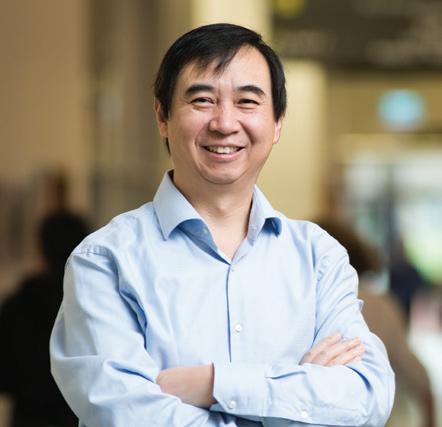
2 minute read
Bedside table
Mengjie Zhang FEngNZ
Role: Professor of Computer Science; Associate Dean (Research and Innovation), Faculty of Engineering; leader for data science and artificial intelligence Initiatives, Victoria University of Wellington Education: Bachelor of Engineering (Mechanical), Agricultural University of Hebei, China (1989); Master of Engineering (Artificial Intelligence and Agricultural Mechanisation), Agricultural University of Hebei (1992); Doctor of Philosophy in Computer Science (Artificial Intelligence), RMIT University, Melbourne, Australia (2000)
Advertisement
Mengjie Zhang FEngNZ has significantly contributed to ICT engineering research in artificial intelligence (AI) and data science and has more than 800 peer-reviewed publications and more than 21,000 citations to his name. He’s successfully applied his technical expertise to engineering applications in the primary industry and to address climate change, health/(bio)medical outcomes and hightech/high-value manufacturing. He co-led the establishment of the first New Zealand undergraduate AI major and postgraduate AI qualifications at Victoria University of Wellington and has supervised more than 50 PhD students. He’s working with iwi to attract more Māori students to AI and data science programmes. Mengjie is a Fellow of both the Royal Society of New Zealand and the Institute of Electrical and Electronics Engineers (IEEE) and an IEEE Distinguished Lecturer. He lived in China and Australia before settling in Wellington 22 years ago.
What’s on your bedside table?
A reading lamp, a cup of water, an iPhone for my reading list. I like reading about history and philosophy and looking at things from a historical point of view, keeping a cenatralised view. I’m a night person so typically I go to sleep after 1am or 2am and I hate getting up before 7am.
Let’s focus on that reading material, what’s behind your choices?
I don’t like reading physical books (except when I was on long flights before Covid-19 when I regularly went to Europe for research conferences and events two or three times per year, frequently reading books, magazines or a PhD thesis). I do like reading online news from different sources, not only from main western streams, but also from Asian channels.
How does your reading help your work?
Reading books and materials in other areas can keep my brain “clear” in research, teaching and service at the University. The historical lessons and experience can help my scientific and engineering research – I choose to trust facts, science and historical experience instead of the current opinions from social media – I am an old-style person! I believe multidisciplinary ideas and materials help my research in ICT engineering, particularly AI, machine learning, data










